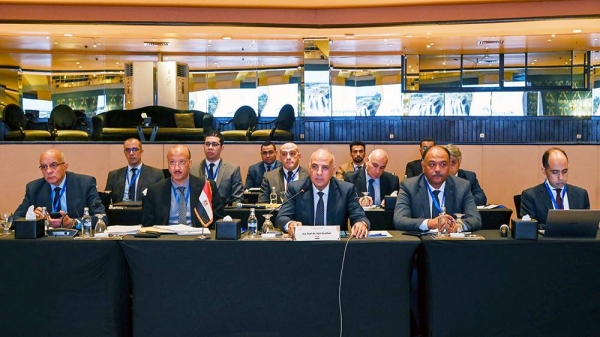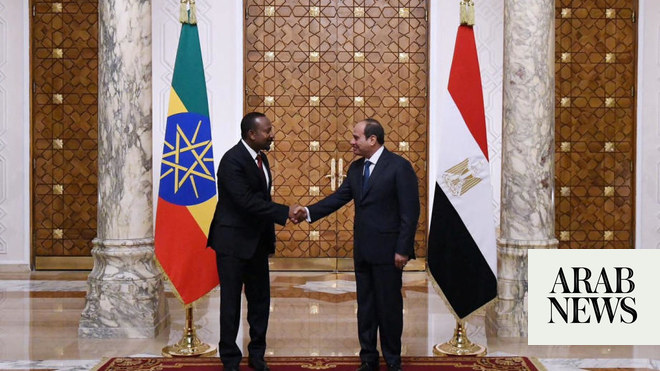
A new round of negotiations on the Grand Ethiopian Renaissance Dam (GERD) issue commenced Sunday with the participation of Sudanese, Egyptian and Ethiopian delegations.
The talks came in the light of the final statement of the two sides’ meeting on the sidelines of the Sudan’s Neighboring Countries Summit, held on July 13, 2023, said Egypt’s Water Resources Ministry in a press statement.
The statement added that Egypt’s Minister of Water Resources Hani Sewilam stressed the need to reach a legal agreement on the filling and operation of the dam, in a way that meets the interest of the three countries.
Filling and operating the dam by one side is a violation of the Declaration of Principles, signed in 2015, he noted.
Egypt will continue to exert efforts to resolve the issue, said Sewilam, adding that his country believes that there are many legal solutions for the issue.
For years at loggerheads over the issue, Egyptian President Abdel Fattah El-Sisi and Ethiopian Prime Minister Abiy Ahmed had agreed in July to finalize a deal within four months.
“A new round of negotiations on the Renaissance Dam began Sunday morning in Cairo, with the participation of the Egyptian, Sudanese and Ethiopian delegations,” the Egyptian Ministry of Water Resources and Irrigation announced.
Sewilam underlined the importance of stopping any unilateral action in this regard, adding that filling and operating the dam without a prior tripartite agreement is a violation of the Declaration of Principles signed by the three countries in 2015.
“Egypt continues to exert maximum efforts to make the negotiation a success,” said the Egyptian minister, emphasizing Egypt believes that the availability of many technical and legal solutions would serve the interests of the three countries and help reach the desired agreement.
The massive $4.2-billion Grand Ethiopian Renaissance Dam (GERD) has been at the center of a regional dispute ever since Ethiopia broke ground on the project in 2011, with Egypt fearing it will slash its share of Nile water.
The current talks aim to reach an agreement that “takes into account the interests and concerns of the three countries,” Sewilam said, urging “an end to unilateral measures.”
Ethiopia announced in June it was launching the fourth filling of the reservoir, despite constant objections by Egypt and at times Sudan — both downstream of Ethiopia on the Nile.
Protracted negotiations over the filling and operation of the dam since 2011 have thus far failed to bring about an agreement between Ethiopia and its downstream neighbors.
Egypt has long viewed the dam as an existential threat, as it relies on the Nile for 97 percent of its water needs.
The dam is nonetheless central to Ethiopia’s development plans, and in February 2022 Addis Ababa announced that it had begun generating hydroelectric energy for the first time.
Ethiopia started to build the GERD in 2011 and expect the giant hydropower project to generate more than 6,000 megawatts of electricity, but Egypt and Sudan are worried that it might reduce their proportion of Nile water.
The Arab world’s most populous country relies almost entirely on the Nile to supply water for agriculture and its more than 100 million people. About 85% of the river’s flow originates from Ethiopia.
Sudan wants Ethiopia to coordinate and share data on the dam’s operation to avoid flooding and protect its own power-generating dams on the Blue Nile, the main tributary of the Nile. The dam is located just 10 kilometers (6 miles) from the Sudanese border. — Agencies












